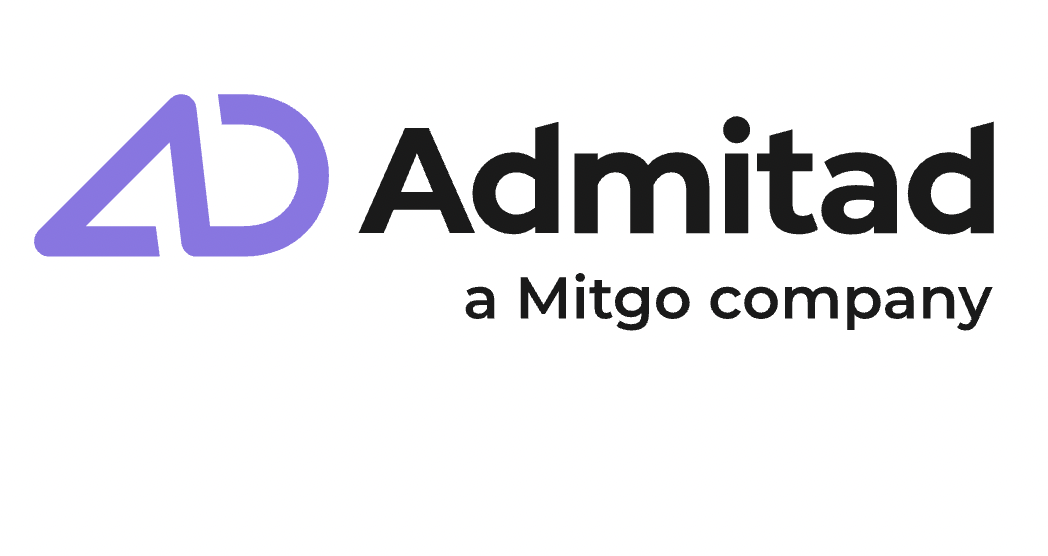SKS picks up where traditional
tax consultancy services leave off!
Services
International Tax Law
SKS Steuerberatung specialises in international tax law. Without professional advice, support and guidance, it is easy to find yourself in all sorts of unpleasant situations, from overpaying taxes to being fined for unintentionally breaking the law. International tax law will play an increasingly important role in the future. Our experience and expertise are at the service of all SKS clients: entrepreneurs and private individuals, partnerships and limited companies operating in various sectors of the economy.
Our specialisation:
- International structuring consulting
- Verification of factual circumstances in accordance with the Foreign Economic Activity
- Taxation Act/Double Taxation Agreement
- Preparation of financial statements in accordance with IAS/IFRS
- Determining the impact of various European regulations and directives on the company's operational business
- Business immigration support
- Preparation on transfer pricing documentation


Dmytro Sonkin
Tax Counsel - Managing Partner
13+
years in
the company
167+
successful
projects


Matthias Müller
Tax Counsel - Partner
9+
years in
the company
63+
successful
projects
Municipal tax law
One of the key areas of municipal tax law is advising and assisting commercial businesses in their transition to the requirements of the new VAT law. As a reliable partner and innovator in this field, we will guide you through the individual implementation of the provisions of the new legal framework and help you to achieve the required result.
Our specialisation:
- Commercial enterprises
- Municipal enterprises
- Special purpose associations
- Changes under the Value Added Tax Act (§ 2b UStG)
- Double-entry accounting
- Audit of annual financial statements and opening balances in cooperation with auditor Hans-Joachim Kraatz


Elisabeth Seifert
Tax Counsel - Managing Partner
13+
years in
the company
174+
successful
projects


Isabel Enge
Tax Counsel
2+
years in
the company
63+
successful
projects
National Tax Law
The increasing complexity of tax law in recent years is not a disadvantage for our clients, but with us an advantage.
SKS Steuerberatung's strength lies in its knowledge and flexible and dynamic application of all current changes and innovations in tax legislation and tax law.
Our specialisation:
- Structuring consulting
- Business and management consulting
- Financial consulting
- Financial accounting
- Asset and corporate succession
- Business start-up consulting
- Consulting in legal disputes
- Inheritance and gifting
- Private investments
- Industry consulting
- Due Diligence
- Buying and selling a business


Daniel Hofmann
Tax Counsel - Partner
12+
years in
the company
62+
successful
projects


Manuel Wundersee
Tax Counsel - Partner
5+
years in
the company
23+
successful
projects
International Tax Law
SKS Steuerberatung specialises in international tax law. Without professional advice, support and guidance, it is easy to find yourself in all sorts of unpleasant situations, from overpaying taxes to being fined for unintentionally breaking the law. International tax law will play an increasingly important role in the future. Our experience and expertise are at the service of all SKS clients: entrepreneurs and private individuals, partnerships and limited companies operating in various sectors of the economy.
Our specialisation:
- International structuring consulting
- Verification of factual circumstances in accordance with the Foreign Economic Activity
- Taxation Act/Double Taxation Agreement
- Preparation of financial statements in accordance with IAS/IFRS
- Determining the impact of various European regulations and directives on the company's operational business
- Business immigration support
- Preparation on transfer pricing documentation


Dmytro Sonkin
Tax Counsel - Managing Partner
13+
years in
the company
167+
successful
projects


Matthias Müller
Tax Counsel - Partner
9+
years in
the company
63+
successful
projects
Municipal tax law
One of the key areas of municipal tax law is advising and assisting commercial businesses in their transition to the requirements of the new VAT law. As a reliable partner and innovator in this field, we will guide you through the individual implementation of the provisions of the new legal framework and help you to achieve the required result.
Our specialisation:
- Commercial enterprises
- Municipal enterprises
- Special purpose associations
- Changes under the Value Added Tax Act (§ 2b UStG)
- Double-entry accounting
- Audit of annual financial statements and opening balances in cooperation with auditor Hans-Joachim Kraatz


Elisabeth Seifert
Tax Counsel - Managing Partner
13+
years in
the company
174+
successful
projects


Isabel Enge
Tax Counsel
2+
years in
the company
63+
successful
projects
National Tax Law
The increasing complexity of tax law in recent years is not a disadvantage for our clients, but with us an advantage.
SKS Steuerberatung's strength lies in its knowledge and flexible and dynamic application of all current changes and innovations in tax legislation and tax law.
Our specialisation:
- Structuring consulting
- Business and management consulting
- Financial consulting
- Financial accounting
- Asset and corporate succession
- Business start-up consulting
- Consulting in legal disputes
- Inheritance and gifting
- Private investments
- Industry consulting
- Due Diligence
- Buying and selling a business


Daniel Hofmann
Tax Counsel - Partner
12+
years in
the company
62+
successful
projects


Manuel Wundersee
Tax Counsel - Partner
5+
years in
the company
23+
successful
projects
Innovation is our guiding principle
Continuous professional
development


100%
digital work


Creative approach
to diverse tasks


Innovative
thinking


If you're looking for more than just a job...
If you're looking for more than just a job... Home Office, TeamWork, NewWork are not just fashionable terms for us, they are a lived reality. With the introduction of our 4-day week in 2021, we have taken our modern working concept to a new level. With the additional time off, we've created an opportunity for our team to fully develop their professional and personal skills and thus achieve greater self-control and self-realisation, not only as employees of the company, but also as individuals in general.
Our company has a flexible organisational structure with flat hierarchies. Our benefits are directly linked to the needs of our team. When it comes to solving problems, the quality of the result is more important to us than the time spent on it.
Does this sound good for you? Then come and join our young and dynamic team, where we support each other, share creative ideas and do great work together.
We let the figures speak for themselves:
20+
years
of experience
999+
loyal
clients
405+
tax
models
112+
business
immigration support
41+
municipal projects
in accordance with § 2b UStG
Client feedback on our collaboration
Client feedback on our collaboration

No matter what challenges you are facing, the SKS team is focussed on finding modern and practicable solutions. They think strategically and don't let up until the best result has been achieved. Their highly creative approach and expertise in IFRS make them an invaluable partner for us.
Dmitrij Sternharz
CEO and founder Exolaunch GmbH

SKS tax consultancy can definitely be recommended without reservation in the area of international structuring advice. The multicultural team with its diverse language skills and experiences can easily adapt to any cultural context and market, opening up completely new dimensions for our projects. Above all, the speed with which the team turns ideas into tangible results deserves great recognition.
Robert Schultz
Chief Financial Officer Mitgo

SKS goes beyond conventional solutions to offer fresh and innovative ideas. SKS Specialists are constantly seeking and mastering their knowledge, skills and experience in order to offer their clients non-obvious advantages. If you are looking for progressive, creative and highly competent cryptocurrency solutions, you will definitely find them at SKS.
Pavlo Denysiuk
CEO of LUNU Solutions GmbH

What we find particularly remarkable about SKS is their quick and competent completion of all agreed tasks. Whether it is a question of meeting deadlines or the precise realisation of projects, they have always proven that they have the necessary know-how, especially when dealing with international connections, to exceed our expectations.
Wladislaw Pinskij
Partner & CEO Endel Sound GmbH

At this point, I would like to emphasise the extremely creative use of IFRS expertise. The complex world of international accounting standards can be confusing, but the team demonstrates an impressive command of the subject matter. They keep up to date with the latest developments and adapt their advice accordingly, not only professionally but also technically. It is one of the most innovative and digital tax firms I have ever worked with.
Vitaliy Starosud
Managing Director Bogdan Corporation

Auerbach Town Council
We have engaged SKS Steuerberatung Dresden to provide tax advice on VAT for public corporations, contract design, financial accounting for affiliated companies, preparation and preparation of annual accounts and have been working together for several years. During this time, we have successfully introduced VAT in the municipality with SKS Steuerberatung, redrafted contracts and utilised numerous consultations. SKS Steuerberatung is characterised by its speedy, relevant and professional work. Furthermore, SKS Steuerberatung takes over the cooperation with the tax authorities in tax matters. We are pleased to have a reliable partner at our side when it comes to tax advice.
Christine Fietz
Head of department Controlling/Financial Management
City of Elstra
Since 2019, we have been working with SKS Steuerberatung Sonkin, Seifert und Partner mbB in the course of auditing the annual financial statements. SKS has always been an expert partner for us. After the changeover to double-entry accounting, the associated delays in the annual financial statements and the constantly changing legal framework, we were able to gain important insights through this collaboration. In the course of the always friendly, courteous and helpful support, SKS is a guarantor for the city of Elstra and has now taken over the tax matters with the tax authorities. We would like to thank SKS for the good co-operation, the speedy implementation of the tasks taken on and the willingness to help with any problems that arise.
Steffen Wustmann
Treasurer City of Elstra

Treuen Town Council
In connection with the introduction of double-entry accounting, we have entrusted SKS Steuerberatung with the local audit of the opening balance sheet as at 1 January 2013 and the subsequent annual financial statements. The prompt and professional completion of this audit work as well as the uncomplicated communication led us to also utilise the tax law consulting services of SKS Steuerberatung, in particular on issues relating to the upcoming sales taxation of municipal income. SKS Steuerberatung has proven to be an extremely reliable and efficient partner for us, both in the local audit of municipal annual financial statements and in advising on municipal tax law, and we are happy to recommend them to others.
Karl-Ernst Binner
Head of Finance and Citizen Services
Treuen Town Council

Despite the difficulties caused by the coronavirus pandemic in preparing tax returns and counselling, through the use of modern means of communication, interaction with SKS has always been at the highest level. All our issues were dealt with efficiently and in a timely manner. During the implementation of a major project to check the budget of an entire municipal enterprise for "hidden" commercial transactions by the tax authorities, we were convinced of the exceptional reliability, competence and efficiency of SKS. The legal opinions and practical advice based on many years of professional experience proved to be extremely accurate and confirmed our confidence that we could rely on SKS in the area of highly specialised municipal tax law.
Thomas Reinhardt
Responsible officer of the financial administration department of the Sonneberg district office



